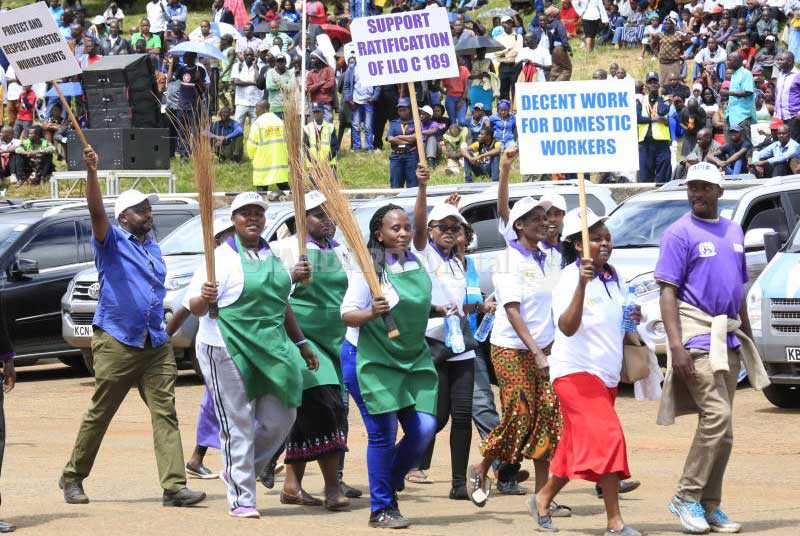
The domestic work sector in the Kenyan economy is not properly regulated yet it plays a key role in economic growth and development, and is a major source of employment in urban and peri-urban areas. Domestic workers perform a range of services and tasks including cooking, cleaning, laundry, child care, elderly care and others as assigned. But despite performing these essential services for the well-being of families and the smooth functioning of the national economy, they have long been ignored in labour legislation and social policy.
Domestic work, mainly done by women, takes place behind closed doors, is privatised and almost invisible to the outside world. These workers are susceptible to long working hours, poor pay as well as physical and sexual abuse. The majority work without clear terms of employment and are excluded from the scope of labour legislation.